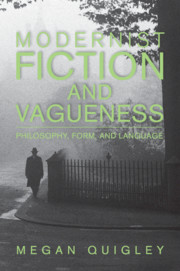Crossref Citations
This Book has been
cited by the following publications. This list is generated based on data provided by Crossref.
Gang, Joshua
2015.
“No Symbols Where None Intended”.
PMLA/Publications of the Modern Language Association of America,
Vol. 130,
Issue. 3,
p.
679.
Milthorpe, Naomi
2017.
Things and Nothings: Henry Green and the Late Modernist Banal.
Novel,
Vol. 50,
Issue. 1,
p.
97.
Ciobanu, Estella Antoaneta
2017.
Food for Thought: Of Tables, Art and Women in Virginia Woolf’s To the Lighthouse.
American, British and Canadian Studies,
Vol. 29,
Issue. 1,
p.
147.
Däumer, Elisabeth
2018.
T. S. Eliot Bibliography 2015.
The T. S. Eliot Studies Annual,
Vol. 2,
Issue. 1,
p.
151.
2019.
Utopia and the Contemporary British Novel.
p.
197.
2019.
Utopia and the Contemporary British Novel.
p.
205.
2019.
Utopia and the Contemporary British Novel.
p.
239.
2019.
Utopia and the Contemporary British Novel.
p.
154.
2019.
Utopia and the Contemporary British Novel.
p.
1.
2019.
Utopia and the Contemporary British Novel.
p.
34.
2019.
Utopia and the Contemporary British Novel.
p.
114.
2019.
Utopia and the Contemporary British Novel.
p.
254.
Edwards, Caroline
2019.
Utopia and the Contemporary British Novel.
2019.
Utopia and the Contemporary British Novel.
p.
76.
Quigley, Megan
2020.
Reading Virginia Woolf Logically.
Poetics Today,
Vol. 41,
Issue. 1,
p.
101.
Grisot, Giulia
Conklin, Kathy
and
Sotirova, Violeta
2020.
Who’s afraid of Virginia Woolf? Readers’ responses to experimental techniques of speech, thought and consciousness presentation in Woolf’sTo the LighthouseandMrs Dalloway.
Language and Literature: International Journal of Stylistics,
Vol. 29,
Issue. 2,
p.
103.
Blevins, Jeffrey
Williams, Daniel
Blevins, Jeffrey
and
Williams, Daniel
2020.
Introduction.
Poetics Today,
Vol. 41,
Issue. 1,
p.
1.
Sönmez, Margaret J.-M.
2022.
A rhetoric of inauthenticity: critical object images in Woolf’s Victorian scenes.
Semiotica,
Vol. 2022,
Issue. 247,
p.
167.
Estrada, Jorge
2023.
Lizensur.
Vol. 7,
Issue. ,
p.
173.





